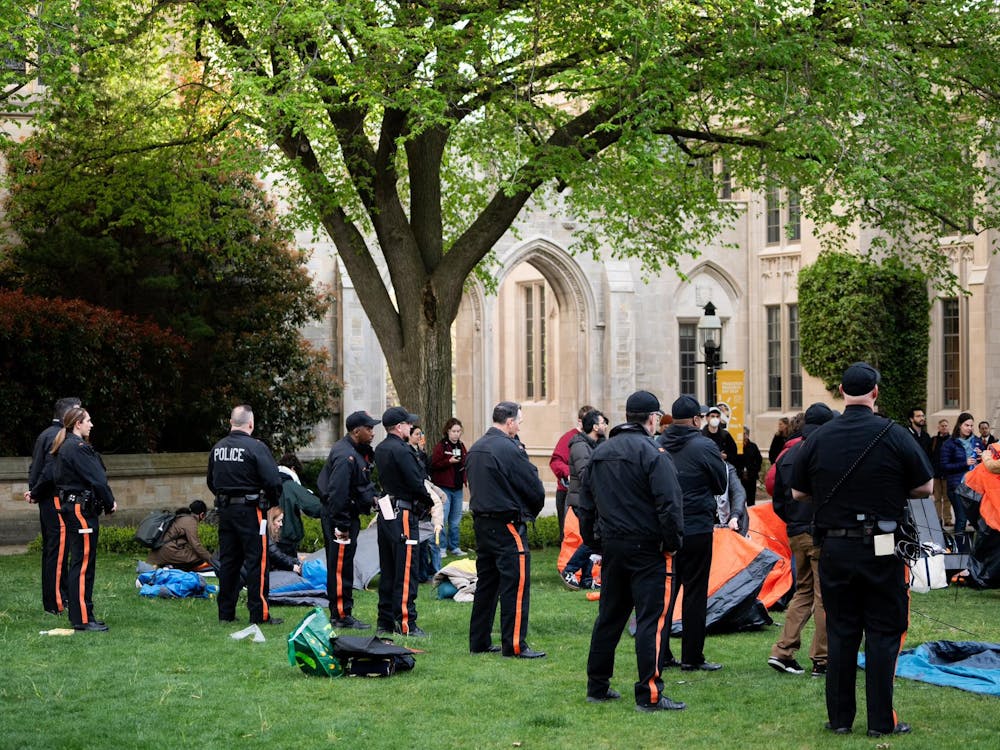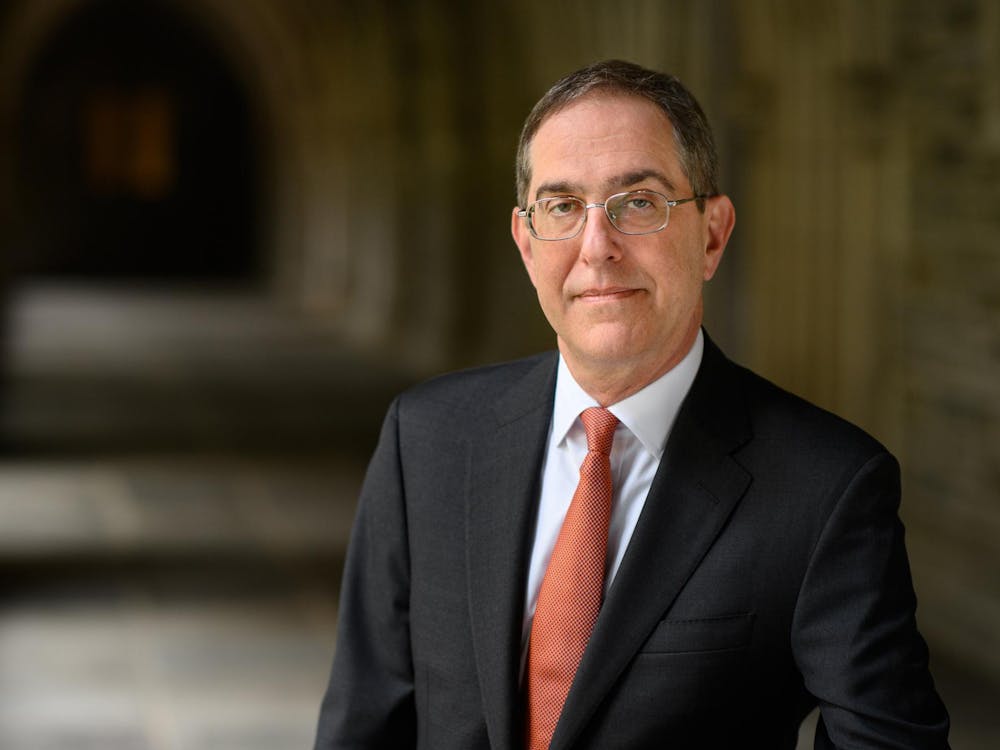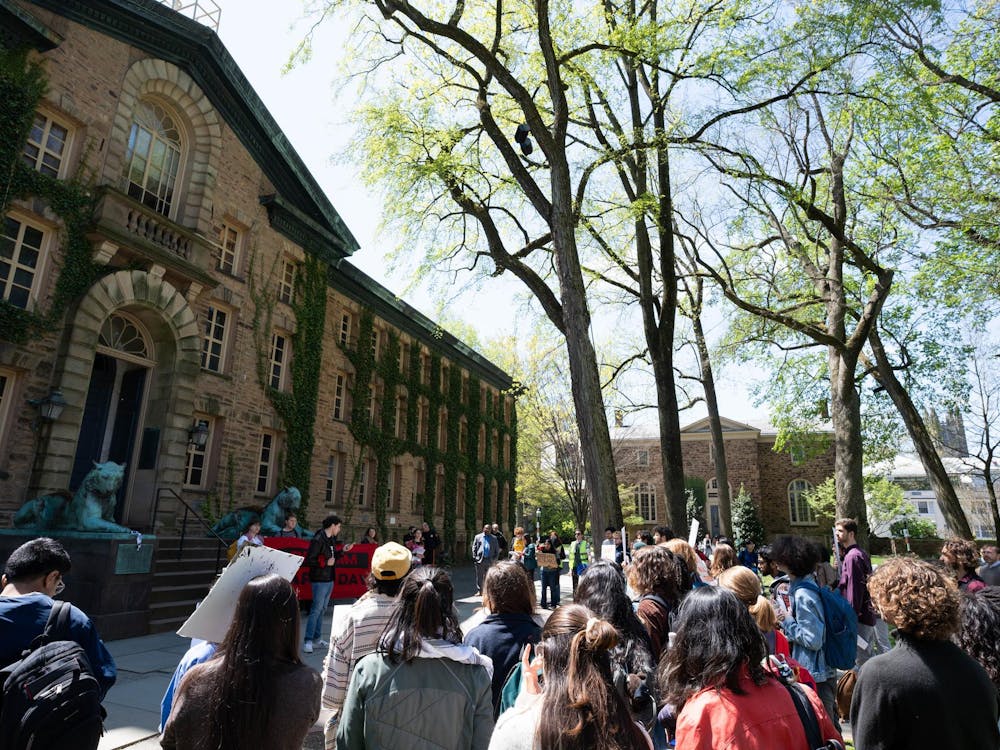I can summarize campus politics in two words: Yik Yak.
Yik Yak has become the primary platform for debate about issues facing our campus, since the app’s anonymity not only facilitates conversation and ardent debate but alsopersonal attacks, as chronicled in several Buzzfeed articles over the “Urban Congo” controversy.
But as heartening as it may be to see students tackling these issues on a variety of social media platforms, these issues must come out of Yik Yak and onto our actual campus and into our dialogue, hopefully without an abundance of ad hominem attacks.
And they have, to some degree. We have made unfathomable progress with engendering debate on campus about the companies in which our university invests its money and the issue of divestment. Regardless of where one stands on the issue, the referendum piqued people’s interest in learning about arguments on both sides. In the process, it raised awareness for the Israeli-Palestinian conflict as a whole. These conversations occurred at dining halls, late meal and eating clubs across campus. The sole fact that these issues even entered our normal discourse indicates a shift in students’ attitudes.
Moreover, on a macro level, we have realized the value and import ascribed to the introduction of referenda and petitions, even if one holds a view opposite to that proposed by the initiative. Voting numbers reflect this shift. The recent divestment referendum compelled 2,032 students to vote; 2,015 students casted votes on the winter break referendum; and 1,988 voted for or against the bicker referendum.
But there are 5391 undergraduate students on this campus. That means only 38 percent of the undergraduate student body voted on the divestment referendum. We need to make our campus more political. I’m not talking about exhorting more people to be solelyactive or to take interest in domestic and international political issues or the party politics that unfortunately characterizes American politics today. I’m talking about exhorting people to take a greater interest in the government and public affairs of this campus and how certain issues affect the student body.
A culture of apathy and close-mindedness governs our campus. Too often, students shrug off political issues that they perceive to not affect them in the “Orange Bubble,” such as Princeton’s current investment practices in correlation with sustainability and the Gaza conflict and sexual assault advocacy. We have yet to realize that this isn’t just about politics, but about how we are affected by these decisions. Of course, that would first require us to realize that we are affected by these decisions.
Too often I hear a student say, “I don’t know enough about the issue to vote” or some variation thereof. Too often we cite an aversion toward politics or being politically involved as a reason to not engage in conversation and debate. Too often we choose to remain indifferent and yet proceed to demand change.
None of the above should serve as an excuse to exonerate one from not voting. Both incognizance and apathy can be combated, what with undergraduate and graduate students tabling in Frist, hosting teach-ins and speakers, among an array of other opportunities to engage and be engaged.
This sort of apathy governs many students’ outlook on Undergraduate Student Government as well. Many harbor negative sentiments and rush to entirely discredit USG as yet another futile bureaucratic institution that remains out-of-touch with the student body and our best interests. And yet, 12 out of 15 positions for class office were uncontested, with many incumbents sweeping the elections.
Another facet of this issue that manifests itself in a general sense of apathy is actively choosing to abstain from voting because many of us simply do not care enough to click on a link, log in and cast a ballot. The numbers speak for themselves — 2200 students voted in the spring USG elections, which represents a voter turnout of 42 percent, less than half the student body. Compare this to a voter turnout of 2704 students in the winter USG elections, which yielded a turnout of 51 percent only a semester ago. This drop in turnout is disheartening.
You may hate politics and politicians and everything that politics has come to stand for, but being politically involved is a separate matter. It remains paramount to participate in day-to-day conversations about issues that affect this campus. It is this sort of conversation that leads to tangible action, which ultimately stimulates change in one way or another.

So I ask you to move away from whatever perception you may have of “campus politics” toward one that embraces it, in an effort to realize that what goes on outside this Bubble does actually affect us, each and every one of us.
Sarah Sakha is a freshman from Scottsdale, Ariz. She can be reached at ssakha@princeton.edu.








